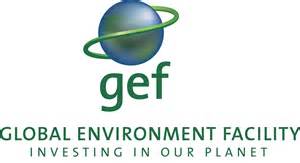Global Environment Facility
The Global Environment Facility (GEF) was established on the eve of the 1992 Rio Earth Summit, to help tackle our planet’s most pressing environmental problems. Since then, the GEF has provided over $14 billion in grants and mobilized in excel of $70 billion in financing for more than 4,000 projects. The GEF has become an international partnership of 183 countries, international institutions, civil society organizations, and the private sector to address global environmental issues.
The GEF has been investing in the Coral Triangle region since the GEF was established and continues to be committed to this critical region. The GEF directly invested in the Coral Triangle Initiative Program with a $72.5M grant (which leveraged $400M co-financing), which was designed to:
- Strengthen the enabling legal, policy & planning environment for improved water, coastal and marine resources management in the participating countries;
- Improve the capacity of key government agencies and other participating stakeholders in civil society, academia, the private sector and at the community level;
- Build and sustainably finance resilient systems for water, coastal and marine resource management;
- Manage environmental threats to international waters from both land and sea-based threats;
- Increase resilience of coastal and marine resources to climate change;
- Monitor ecological and socioeconomic impacts and share this knowledge to improve management; and,
- Communicate and coordinate among projects through a permanent CTI Secretariat.
The GEF has also invested in the CTI Coral Reef Rehabilitation and Management Program (COREMAP-CTI), which is designed to protect, rehabilitate and achieve sustainable use of coral reefs and associated ecosystems in Indonesia, which will, in turn, enhance the welfare of coastal communities. The third and final phase of COREMAP is currently underway to institutionalize a viable, decentralized and integrated framework for sustainable management of coral reef resources, associated eco-systems and bio-diversity for the welfare of the communities in seven selected districts of five provinces in Indonesia through a $8M GEF grant, which leveraged $56M in co-financing.
Numerous additional GEF investments have been made in the Coral Triangle region to further sustainable transboundary ocean governance with emphasis on sustainable fisheries, pollution abatement and marine ecosystem protection. These projects have included investments in the development of Transboundary Diagnostic Analyses and Strategic Action Programs (SAPs) for the Indonesian Sea, Arafura Timor Seas, Sulu-Celebes Sea, Bay of Bengal and South China Sea LMEs as well as the subsequent implementation of these SAPs.


